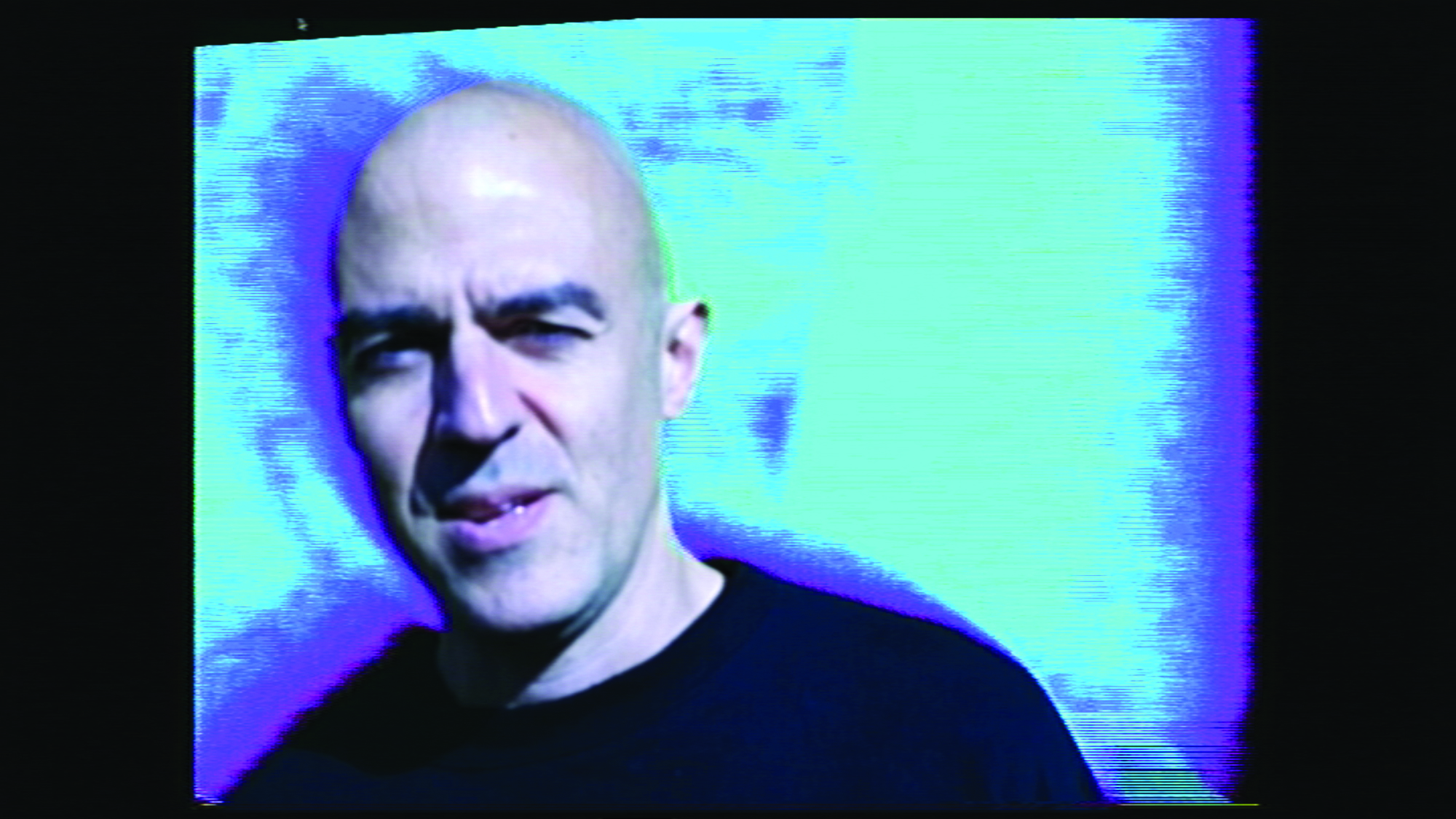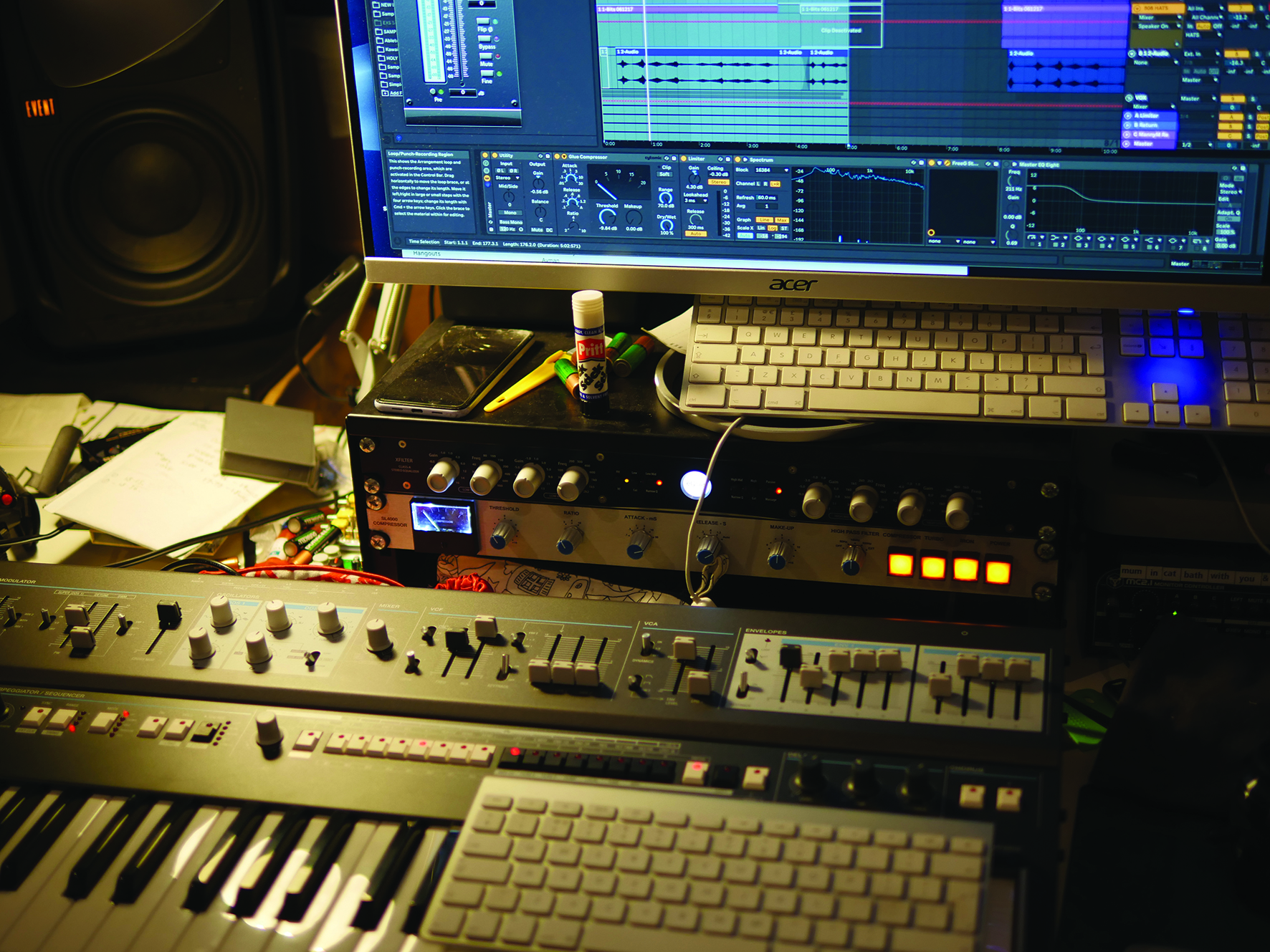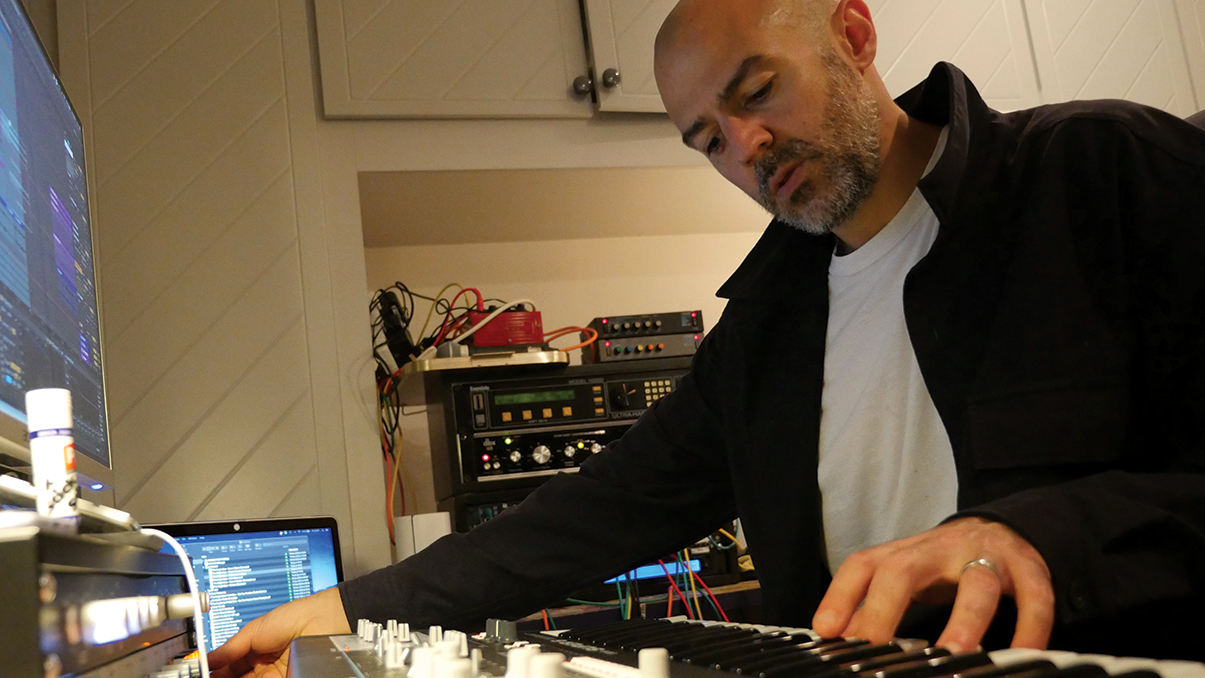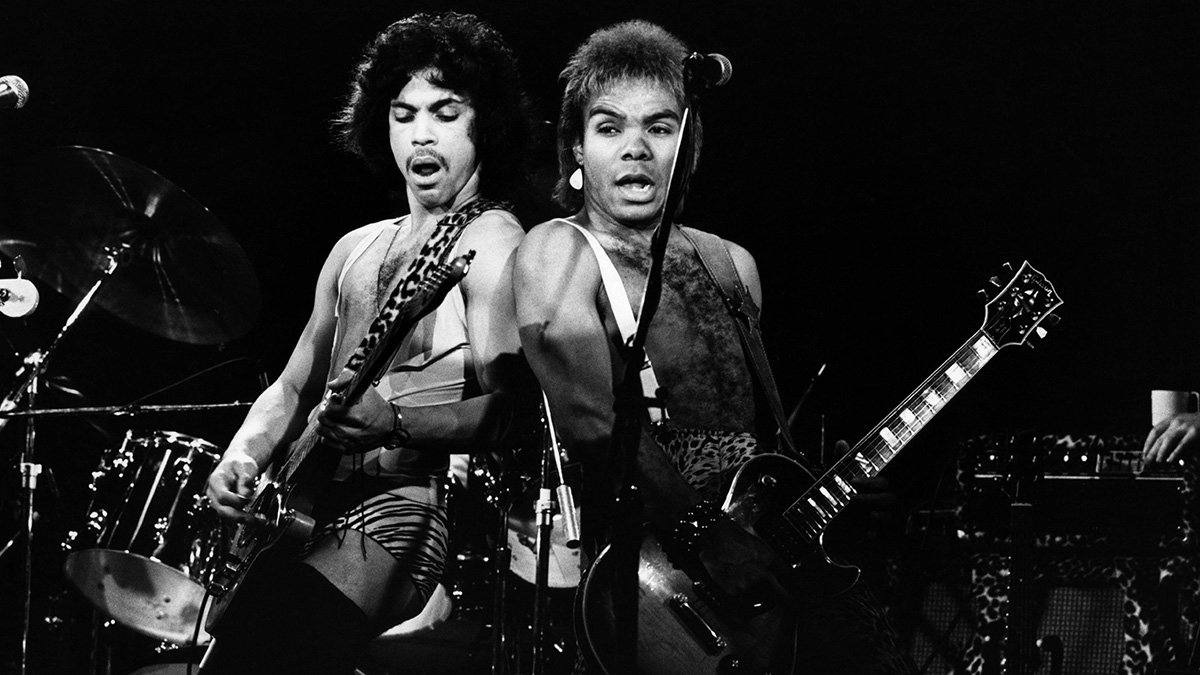The Maghreban: "The most important things are the computer and turntables; any other bits are the icing on the cake"
Veteran producer Ayman Rostom’s latest album, Connection, connects the dots between jazz, techno and Eastern influences

Ayman Rostom has been making music with a computer for donkeys’ years, adopting an early Mac and never looking back.
He’s worked under several aliases to make music in different styles over the past three decades (jazz, hip-hop and more), but his The Maghreban moniker has garnered the most attention, with its genre-bending idiosyncrasies.
Here he delivers a lesson in mixing styles, influences and technology with top advice to turn what might just be ‘pissing around’ with software into one of the albums of 2022.
How did you start out in music production in the first place?
“I’ve been making music for a while under different names and in different genres. Under my own first name, Ayman, with my first jungle records in the ’90s, then as Doctor Zygote making hip-hop in the ’00s and as part of Strange U (a long time collaboration with rapper King Kashmere); and more recently as The Maghreban, my dance music project.
“I grew up in Guildford, which is near enough to London to benefit from some of the cultural stuff seeping out, but far enough away to have its own thing going on. An older brother and his friends helped funnel some of that stuff in my direction. A load of ’80s pop, watching Breakin’, The Cure, getting into some metal at the same time as being switched on to NWA and Public Enemy, The Pixies at the same time as Colin Dale on Kiss FM.
“We started recording pirate radio and then got some turntables and a mixer in 1991 and didn’t look back. It evolved from hardcore into jungle, then drum&bass, and later on I got big into hip-hop.”
When and how would you say you became successful, or at least able to make a living from music?
“Around 2013/14, a few things converged for me that felt like it crystalised something. I’d just had an album of library music out on Black Acre, with no samples in it, where I recorded everything myself (as Grupo Zygote). I was dropping Strange U material with King Kashmere on Eglo records, and I’d started putting stuff out as The Maghreban and it was moving. It’s not always a living, but when it is it’s a blessing.”
Get the MusicRadar Newsletter
Want all the hottest music and gear news, reviews, deals, features and more, direct to your inbox? Sign up here.
What is your musical philosophy?
“My general approach is to piss around, and to try to do something every day, even if only for five minutes. To stay in touch with the playful element of making music or whatever other creative endeavour it is. It’s easily lost, and it’s how I started. Experiment for experiment’s sake. If I manage to do that, I am much less hard on myself about what the results are. I disconnect from that a little, and I am freer and I seem to do more. If I get focused on results, it can really stifle everything and then I can get into a cycle of creative blocks and avoidance of my creativity.
My general approach is to piss around, and to try to do something every day, even if only for five minutes
“I save everything. I’ve got hundreds of awful ideas and some good ones. That’s the playing side. And then the recording and production side is more work. Trial and error, referencing a lot and making notes and ticking things off to progress towards a finished product. There is always a bit of play though still. I’m always trying new ways of doing things at the mixing stage. The process always evolves slowly.”
When did you discover the computer music route to music production?
“We had a Mac LCII in the early ’90s with some software which I can’t remember the name of: a simple program that let you record audio in, edit it and reverse or loop it. Twin Peaks obsessed at the time, I mostly used it to learn how to say “Fire Walk With Me” backwards. But it got me interested. Next thing was starting to read the music tech magazines and buying an Akai S01 sampler, MIDI interface and Roland MIDI keyboard, and also a copy of Opcode EZ Vision sequencer.
“Then I was off and running. I had my first records out the next two years. I got a better sampler, an S1000. Then I switched to a PC running Cakewalk. Then an S5000 briefly, then started using Logic on the PC. Then back to a Mac and Logic for years and now Ableton. I’ve only ever really made music using a computer.“
“I’m not a musician in the classical sense. Last year I got hold of an 8-track reel-to-reel tape machine, and I was making some tracks just on that; playing bass, and some percussion with a couple of drum machines synced up and a couple of synths. It was fun, and the first time I made music without a computer. Then I had to pack up all my gear to move house and haven’t had the space for it since.”
Tell us about the gear in your studio.
“The most important things are the computer and turntables; any other bits are the icing. I’ve got a 16-channel sound card going into a patchbay, then into a Studer 961 mixer, direct outs going into a second patchbay and back into the soundcard, which makes it easy to run stuff through. I’ve got an Eventide H949 which sounds great. Recently I’ve been using a couple of Boss units for most of my effects – an RPS-10 pitchshifting delay and RRV-10 reverb. Then I use a Nekotronics SSL Bus compressor clone, into an Elysia stereo EQ for mix bus processing/pre-mastering.
The most important things are the computer and turntables; any other bits are the icing
“I’ve got a couple of synths and drum machines. An SH-101, a Korg PolySix, a TR-707 and TR-606. I’ve had a lot more gear over the years. My dad went to work in Saudi Arabia in around 1991 and I went there to visit him. We were walking through this shopping mall and there was this tired music shop, the local Roland dealer, full of classic Roland gear. They had boxed, unused TB-303s for £80 each, MC-202s, SH-101s… There was an MKS-80, a Jupiter-6. We bought a lot of it and brought them back here and sold them. That’s how I raised the money to get the S1000. I never bought the MKS-80 and there was an 808 I didn’t buy which I regret.
“My biggest regret was selling the Jupiter-6 in 1999 for £800 in order to purchase an Akai S5000. Within a couple of years, I’d switched to Logic and the S5000 was gathering dust. Now the Jupiter-6 costs a hell of a lot. And money aside, I could have much more fun with a Jupiter-6 these days than I did back then; it was too early for me. I bought an UDO Super 6 recently and it’s helping to scratch that itch.”
What are your favourite plugins?
“I don’t use hundreds of plugins, and I don’t keep up to date with all the new plugins out there. This is to my own detriment. I am sure there are things I am missing out on. I use a lot of stock plugins. I am still mostly sample based and I have a large library I’ve built up over the last 20 years or so.
“Ableton Simpler: I used to sample into Soundforge, chop in Recycle and then import into the EXS24 in Logic. This was a very long winded way of working, between hearing an inspiring sound and being able to mess with it. Simpler is so quick and easy, once I got used to it, it revolutionised the way I work with samples.
“Ableton EQ8: I use this EQ the most, it’s just very quick and simple to use.
“Oeksound Soothe 2: I’ve only recently started buying a couple of plugins and this is one of them. This has been great for sibilance and also enabled me to be much happier with the sound of the tops on some of my tunes. It really takes the edge off harshness in a very usable way.
“Eventide Split EQ: This is the other one I bought recently. I’ve only just started experimenting with it but it’s been really useful cutting mud from some breaks and tightening up the low end. I’m sure I’m going to find many more uses for it.
“Ableton Utility. Extremely boring, but I use this on most channels. For boosting gain, controlling the stereo image, and most helpfully in the low end, the Mono Bass function is very handy. A couple of these in series panning on one and mono-ing on the next, is very helpful in finding the most useful sound in a stereo sample.”

How do you tend to start a track?
“I go through a bunch of records and do a load of sampling (with TwistedWave – very quick and the developer is very helpful). In Simpler I start chopping and messing around until I come up with something. Then I record into Clip View in Ableton. I get a few things going that sound good together, a lot of laying patterns down and then overdubbing into a new clip to make progressions in the patterns. Then I usually plug in my Akai APC40 and trigger the clips while recording them into an Arrangement.
“This way of jamming out the arrangement live has also revolutionised what I do. Before Ableton, it was a laborious process of copy and pasting regions in Logic to hash out the arrangement. Doing it live is so much quicker and more intuitive and it’s why I love Ableton.
Switching DAWs is not easy, but I’m glad I put the effort into doing it
“Switching DAWs is not easy, but I’m glad I put the effort into doing it. I then edit the arrangement down and refine it, then set up a couple of sends into some hardware effects and record a few passes of those to blend in. I’ll then move towards mixing. I cut rumble on channels, mono the bass, make sure there’s enough stereo, check it’s OK in mono, reference with tracks I like the sound of, then bounce it through my bus compressor and stereo EQ.”
Do you have any production tricks?
“I buy a lot of cheap, mostly bad LPs from charity shops or record shops. I let those stack up, then I have a session where I go through and sample little sounds from them and make big multi samples that might have bits from two or three records. I chop those and just mess about building up patterns. That defines my sound: the character of the sampled sounds, the sound of the vinyl and a bit of mischievousness in the way that I lay them out.
“Also I reuse a lot of these little stab sounds I’ve found over the years and sometimes I know which one to go for when I’m working on a track. I excuse that by telling myself that some people use the same drum machine on everything, so I am entitled to use a little sound a few times that I sampled a few years ago that I don’t reckon anyone else has.”
How do you know when a track is done?
“I never bounce a track before I’ve got all the main ideas down. It kills my vibe very quickly. If I’m listening to a half-baked idea before it’s finished, I lose the excitement of firing up the computer to work on the track. So that discipline helps move me towards finishing.
That defines my sound: the character of the sampled sounds, the sound of the vinyl and a bit of mischievousness in the way that I lay them out
“Then the opposite: a lot of listening to make sure it’s all good. On my phone speakers, headphones, and in the car. Copious notes on my phone of things to try. Here are some of my notes, for example: “Back off on Soothe on breaks or add some 8k-ish white noise”, “too midrangey? Need sparkle”, “Casio up. Especially hook bits. Vox down”.
“Then, much referencing. I have little snippets of tracks I like the sound of, and I will bounce my track with these inserted in. They could be a bar or less. It gives me an overall view of how things stands up sonically.”
What’s on your gear wishlist?
“I’m trying not to buy any more gear at the moment. There are a couple of things I need to sell. Part of me wants to buy one of these new SP1200s, but I couldn’t justify the spend. I’ve never been a drum machine guy so there is some intrigue there. I haven’t dived into Eurorack or modular either, and there is some intrigue there too. I hear people making some pretty crazy sounds with it. Maybe I’ll go there slowly. Maybe the reticence is that I’ll lose my ‘sound’ or something. Who knows?”
Which track do you wish you’d produced and why?
“Studio Pressure (Photek) – Jump Mk 2. It’s just got all the elements, it’s a roller and the percussion is amazing. Those stab sounds make me frown nicely. It’s got the arc of a great song: intro, drops into heaviness, darkness then there’s a lighter bit in the middle, then goes back to the dark bit towards the end. Amazing. An archetypal jungle tune. I could have picked almost any tune by him though.”

Any advice for playing live?
“This is advice I am giving myself while working on my new live show: have a few bits where it could go wrong. Have some bits where you make something new there and then, despite not being a keyboard wizard. Make it easier for myself, label some keys on the keyboard that work for certain bits. Incorporate a visual element.”
And what about studio advice?
“Play, and work. Try to do a bit of both each day. Balance is good. Do a bit of everything. Don’t avoid any one part of the process. Do something, even small, every day.”
Any other advice from the industry that you can pass on?
“Again I’m talking to myself here and if it helps anyone else then great: stick to one thing. People will know who you are and what they are getting. Don’t let your boredom let you flit between too many styles because then people won’t have a clear sense of who you are and what you do. Try to damp down the desire to change things up all the time.”
What would you like to see developed in terms of music production technology or studio gear?
“I think I’m a bit of a luddite as my process hasn’t really changed much and I am sure there are things out there that would blow my mind, but I don’t find myself searching. So some of these might exist: something that could cleanly, without artefacts, strip out drums from entire tracks, to open up sampling more.
“Some things that can do this but they seem to have a certain sound, like it’s processed, or like a low bit-rate mp3. Or a plugin that could truly (perhaps using AI?) approximate between two sounds without mixing them together, so you could feed in two things and get something new. I want something that could make new drums breaks, or new other sounds.”
What do you have planned?
“I am going to get back to putting out straightforward dance music, meant for dancing to. This has been fun. I am releasing a bunch of tracks one at a time later in the year, digital only.”


Computer Music magazine is the world’s best selling publication dedicated solely to making great music with your Mac or PC computer. Each issue it brings its lucky readers the best in cutting-edge tutorials, need-to-know, expert software reviews and even all the tools you actually need to make great music today, courtesy of our legendary CM Plugin Suite.
“From a music production perspective, I really like a lot of what Equinox is capable of – it’s a shame it's priced for the post-production market”: iZotope Equinox review
"This is the amp that defined what electric guitar sounds like": Universal Audio releases its UAFX Woodrow '55 pedal as a plugin, putting an "American classic" in your DAW










